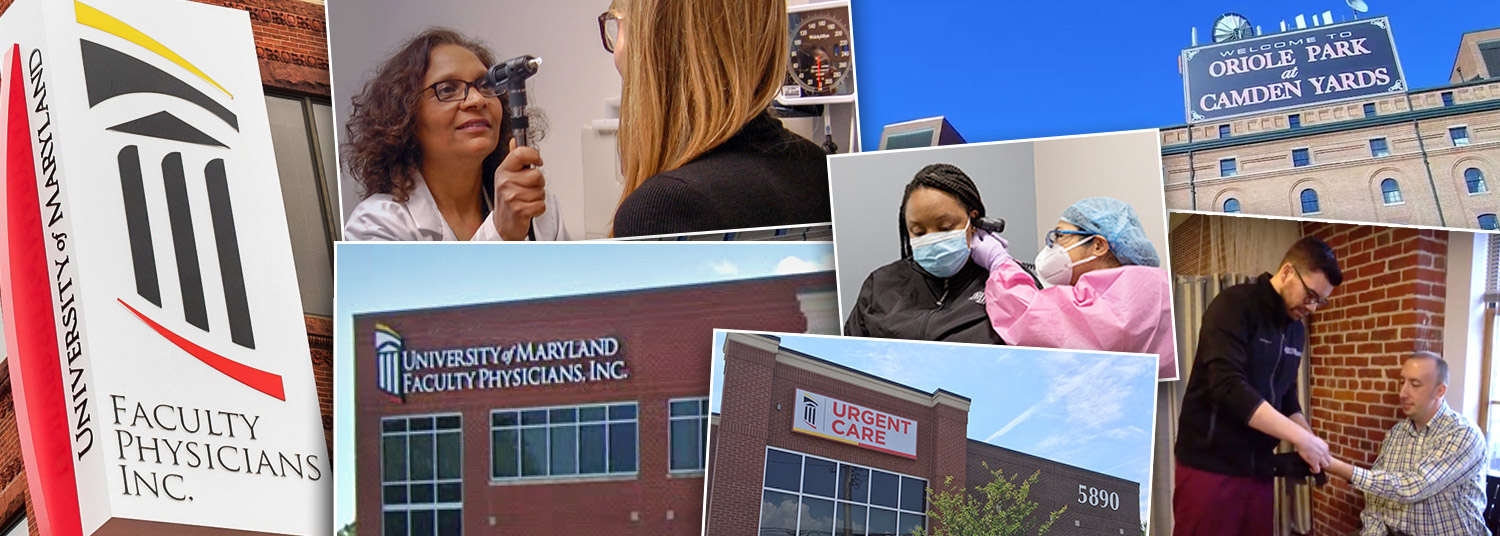March 22, 2022
Tenure Marked by Close Collaboration with UMSOM Department Chairs and Directors, Turnaround to Financial Stability
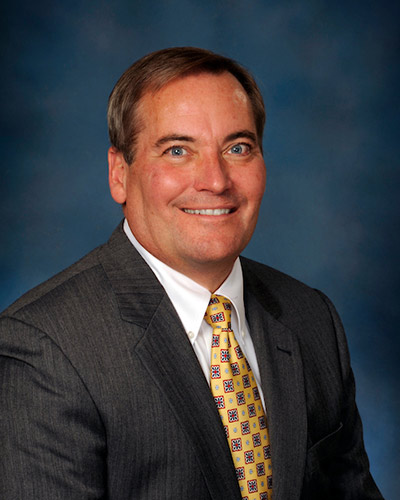 University of Maryland School of Medicine (UMSOM) Dean E. Albert Reece, MD, PhD, MBA, announced today that William Tucker, MBA, CPA, Associate Dean for Practice Plan Affairs at the University of Maryland School of Medicine (UMSOM), and Chief Corporate Officer for the UM Faculty Physicians, Inc. (FPI), will retire from his position on July 1. For the past 22 years, he led the organization to its highest levels of operational performance and excellence in patient care, while successfully expanding outpatient practice locations across the State of Maryland.
University of Maryland School of Medicine (UMSOM) Dean E. Albert Reece, MD, PhD, MBA, announced today that William Tucker, MBA, CPA, Associate Dean for Practice Plan Affairs at the University of Maryland School of Medicine (UMSOM), and Chief Corporate Officer for the UM Faculty Physicians, Inc. (FPI), will retire from his position on July 1. For the past 22 years, he led the organization to its highest levels of operational performance and excellence in patient care, while successfully expanding outpatient practice locations across the State of Maryland.
FPI, which was established by the University System of Maryland Board of Regents in 1983, manages the business affairs of the UMSOM faculty clinical practices to maximize efficiency and effectiveness. The organization manages practice space, practice standards, and all banking and finance functions of the faculty clinical practices. The scope of FPI’s operations has expanded significantly over the past decade. The organization now manages clinical practices for 1,200 faculty members, treating more than 1.5 million outpatients and inpatients each year at 62 locations across the State of Maryland.
During Mr. Tucker’s tenure, FPI, formerly known as University Physicians, Inc. (UPI) until 2007, experienced dramatic growth across all of its key metrics – moving from a position of financial instability in 2006 to its current position of fiscal strength and stability. In the period, FY 2010-FY 2021, FPI’s clinical revenues soared 98 percent, from $212M to $421.2M. Patient volumes have increased nearly 57 percent since FY 2006. Days-in Accounts Receivables decreased by nearly 48 percent during this period. FPI Practice Locations expanded across the state from 6 to 62.
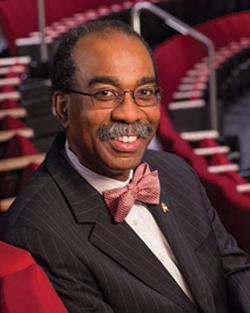 “I am deeply grateful to Bill Tucker for his outstanding service to and leadership of our faculty practice plan over the past two decades,” said Dean Reece. “The unparalleled performance results of the past 20 years are just one indication of the lasting impact he has had in leading this enterprise. His close, collaborative work with each of the department chairs and directors to enhance growth and ensure consistency, in challenging times, leaves a enduring legacy,” he said.
“I am deeply grateful to Bill Tucker for his outstanding service to and leadership of our faculty practice plan over the past two decades,” said Dean Reece. “The unparalleled performance results of the past 20 years are just one indication of the lasting impact he has had in leading this enterprise. His close, collaborative work with each of the department chairs and directors to enhance growth and ensure consistency, in challenging times, leaves a enduring legacy,” he said.
Under Mr. Tucker’s leadership, FPI collaborated with UMMS to establish FPI clinical practices in or near to UMMS hospitals, while others are freestanding and easily accessible to residents across the State. One such freestanding FPI facility, Waterloo Crossing in Columbia, MD, constructed in 2016, stands as a model for a state-of-the-art urgent care, primary care, and multi-specialty facility. The 35,600 square-foot site includes all of these as well as a Surgi-Center, and other specialty practices. In addition, the 10,000 square-foot UM Orthopaedics at Camden Yards in Baltimore, also established in 2016, is another leading-edge example of the successful expansion of FPI outpatient clinical practices during this period.
“I have received tremendous support over the years, from Dean Reece to the department chairs and directors, to the stellar team of professionals I have had the privilege of working with during this time,” Mr. Tucker said. “We all share in the success of FPI. I am confident that we have the right leadership and team in place to continue this strong, upward momentum into the future.”
Mr. Tucker began at UPI in 2000 as Director of Business Development. He was appointed Interim Executive Director in July 2006, and was named Chief Corporate Officer in 2007. As part of his role in reporting to Dean Reece in the UMSOM’s senior administration, Mr. Tucker was appointed Assistant Dean, and then Associate Dean for Practice Plan Affairs.
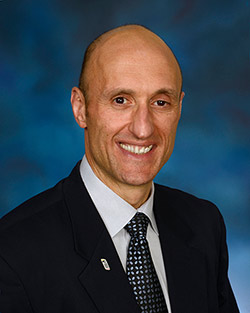 In 2006, the FPI Practice Plan found itself in a fragile and unstable financial position, with less than 30 days of its operating budget in reserve, while the national standard for business excellence is considered to be 4-6 months of reserves. Through a combination of aggressive business strategies, entrepreneurship, diversification, and suburban satellites, along with excellent leadership of the UMSOM Chairs and Directors and FPI’s corporate leaders, the FPI Practice Plan was able to achieve a full transformation to its current level of its financial performance and stability.
In 2006, the FPI Practice Plan found itself in a fragile and unstable financial position, with less than 30 days of its operating budget in reserve, while the national standard for business excellence is considered to be 4-6 months of reserves. Through a combination of aggressive business strategies, entrepreneurship, diversification, and suburban satellites, along with excellent leadership of the UMSOM Chairs and Directors and FPI’s corporate leaders, the FPI Practice Plan was able to achieve a full transformation to its current level of its financial performance and stability.
To achieve this success during this time, a “matrix” model was implemented, with each department developing strong business units that worked collaboratively with FPI’s corporate business unit.
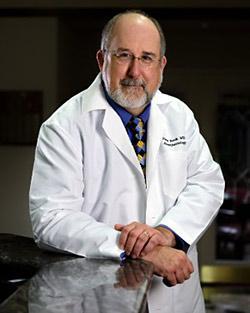 Over the past year, Dean Reece and Mr. Tucker have led FPI toward a new integrated model as part of a plan for maximizing long-term business growth. The new model is based on recommendations by a Governance Committee made up of senior UMSOM faculty. The Committee worked to establish a vision for the future of FPI and a workplan for greater integration and collaboration among department chairs and directors. The consensus of the Committee, put forward in recommendations to Dean Reece, was to move toward an integrated plan that will enable the clinical practices to more closely align strategies and resources to continue financial success and clinical mission effectiveness.
Over the past year, Dean Reece and Mr. Tucker have led FPI toward a new integrated model as part of a plan for maximizing long-term business growth. The new model is based on recommendations by a Governance Committee made up of senior UMSOM faculty. The Committee worked to establish a vision for the future of FPI and a workplan for greater integration and collaboration among department chairs and directors. The consensus of the Committee, put forward in recommendations to Dean Reece, was to move toward an integrated plan that will enable the clinical practices to more closely align strategies and resources to continue financial success and clinical mission effectiveness.
“Bill Tucker’s 22 years of service has helped bring FPI to its highest level of performance and leaves behind a strong platform from which we can build on to achieve even greater levels of success for our healthcare team and the patients we serve,” said William Regine, MD. FACR, FACRO, the Isadore & Fannie Foxman Professor and Chair of Radiation Oncology, who will serve as Interim President of FPI.
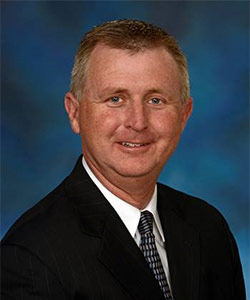 Peter Rock, MD, MBA, the Martin Helrich Professor and Chair of Anesthesiology, who will serve as Interim Senior Vice President of FPI, commented: “Mr. Tucker has been instrumental in leading the faculty practices to great accomplishments and achievements. His vision and steady guiding hand have benefited not only FPI, but the School of Medicine as well. We will miss his commitment to FPI and our mission of providing outstanding care to our patients,” he said.
Peter Rock, MD, MBA, the Martin Helrich Professor and Chair of Anesthesiology, who will serve as Interim Senior Vice President of FPI, commented: “Mr. Tucker has been instrumental in leading the faculty practices to great accomplishments and achievements. His vision and steady guiding hand have benefited not only FPI, but the School of Medicine as well. We will miss his commitment to FPI and our mission of providing outstanding care to our patients,” he said.
Mr. Tucker’s executive leadership team at FPI emphasized the value he has brought to the operation over the past two decades.
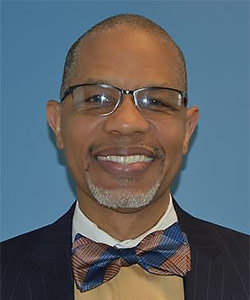 Bill Elliott, MBA, Chief Operating Officer for FPI, said “It has been a pleasure working with Bill during my time at FPI over the last 14 years. His leadership and overall care for the health of both the organization and people has been impressive and provides a great model for the future of FPI. I appreciate his leadership, strategic direction, and mentorship. He has developed a strong team, and we hope to continue the upward trajectory Bill has worked so hard to achieve.”
Bill Elliott, MBA, Chief Operating Officer for FPI, said “It has been a pleasure working with Bill during my time at FPI over the last 14 years. His leadership and overall care for the health of both the organization and people has been impressive and provides a great model for the future of FPI. I appreciate his leadership, strategic direction, and mentorship. He has developed a strong team, and we hope to continue the upward trajectory Bill has worked so hard to achieve.”
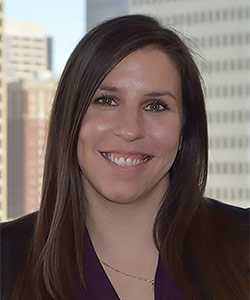 Carlton McCullough, M.Eng., MBA, Chief Information Officer at FPI, said, “Bill’s knowledge of the inner workings and history of FPI, as well as the relationships that he has built, have proven invaluable in accomplishing and furthering FPI’s mission. His accomplishments during his tenure have laid the foundation for a strong future. Bill’s ‘down-to-earth’ personality has fostered a sense of teamwork and collegiality amongst the staff, and he will surely be missed.”
Carlton McCullough, M.Eng., MBA, Chief Information Officer at FPI, said, “Bill’s knowledge of the inner workings and history of FPI, as well as the relationships that he has built, have proven invaluable in accomplishing and furthering FPI’s mission. His accomplishments during his tenure have laid the foundation for a strong future. Bill’s ‘down-to-earth’ personality has fostered a sense of teamwork and collegiality amongst the staff, and he will surely be missed.”
Jacqueline Farrell, MBA, Chief Financial Officer for FPI, said "I have worked with Bill Tucker for many years. Bill is a dedicated and loyal leader who has consistently committed himself to preserve our company’s efficient operation as well as maintain a sense of camaraderie. He has made many contributions during his tenure, leaving FPI in a great position to move forward and achieve future successes."
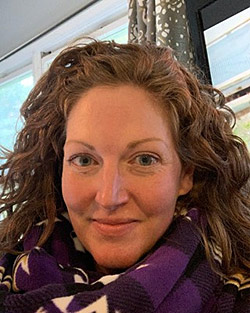 Sarah Otwell, Esq., General Counsel for FPI, said "I’ve had the pleasure of working with Bill for the last six years. Bill’s always challenged us to find creative solutions to tough problems. With his leadership, we’ve been successful in getting the best results for our clients as we move into the future."
Sarah Otwell, Esq., General Counsel for FPI, said "I’ve had the pleasure of working with Bill for the last six years. Bill’s always challenged us to find creative solutions to tough problems. With his leadership, we’ve been successful in getting the best results for our clients as we move into the future."
Prior to joining FPI, Mr. Tucker held various positions in business, finance, and consulting, including with General Electric, RCA and the Medical Group of Methodist Hospital in Indianapolis.
He graduated with a B.S. Degree in Business Management, Marketing, and Economics from Clarion University. He went on to Purdue University to receive his MBA Degree in Finance, and then subsequently earned his CPA license.
About the University of Maryland School of Medicine
Now in its third century, the University of Maryland School of Medicine was chartered in 1807 as the first public medical school in the United States. It continues today as one of the fastest growing, top-tier biomedical research enterprises in the world -- with 46 academic departments, centers, institutes, and programs, and a faculty of more than 3,000 physicians, scientists, and allied health professionals, including members of the National Academy of Medicine and the National Academy of Sciences, and a distinguished two-time winner of the Albert E. Lasker Award in Medical Research. With an operating budget of more than $1.3 billion, the School of Medicine works closely in partnership with the University of Maryland Medical Center and Medical System to provide research-intensive, academic and clinically based care for nearly 2 million patients each year. The School of Medicine has nearly $600 million in extramural funding, with most of its academic departments highly ranked among all medical schools in the nation in research funding. As one of the seven professional schools that make up the University of Maryland, Baltimore campus, the School of Medicine has a total population of nearly 9,000 faculty and staff, including 2,500 students, trainees, residents, and fellows. The combined School of Medicine and Medical System (“University of Maryland Medicine”) has an annual budget of over $6 billion and an economic impact of nearly $20 billion on the state and local community. The School of Medicine, which ranks as the 8th highest among public medical schools in research productivity (according to the Association of American Medical Colleges profile) is an innovator in translational medicine, with 606 active patents and 52 start-up companies. In the latest U.S. News & World Report ranking of the Best Medical Schools, published in 2021, the UM School of Medicine is ranked #9 among the 92 public medical schools in the U.S., and in the top 15 percent (#27) of all 192 public and private U.S. medical schools. The School of Medicine works locally, nationally, and globally, with research and treatment facilities in 36 countries around the world. Visit medschool.umaryland.edu
Contact
Office of Public Affairs
655 West Baltimore Street
Bressler Research Building 14-002
Baltimore, Maryland 21201-1559
Contact Media Relations
(410) 706-5260
Related stories
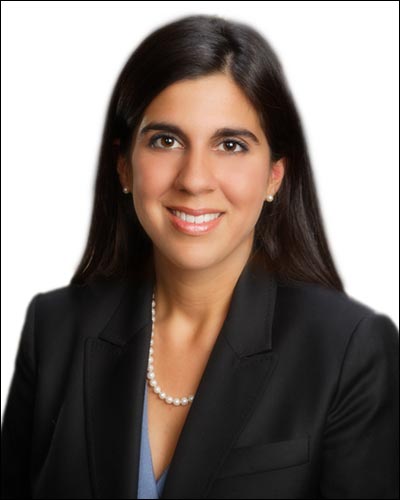
Monday, May 15, 2023
Leading Healthcare Executive Rachel Hoover, MS, MBA, Named Executive Vice President at UM Faculty Physicians, Inc.
William F. Regine, MD, President of University of Maryland Faculty Physicians, Inc. (FPI), along with University of Maryland School of Medicine (UMSOM) Dean Mark T. Gladwin, MD announced today that Rachel L. Hoover, MS, MBA, will serve as the new FPI Executive Vice President and Chief Administrative Officer (EVP/CAO), effective May 1.
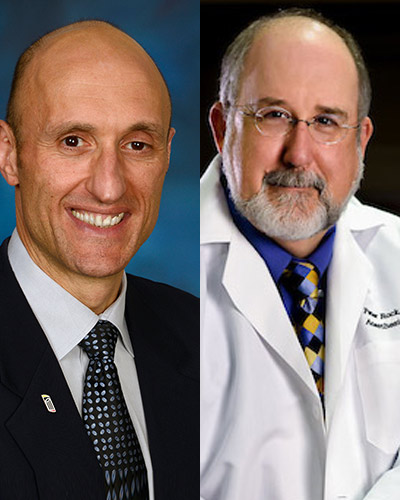
Wednesday, March 16, 2022
University of Maryland School of Medicine Announces New Integrated Model for UM Faculty Physicians, Inc. (FPI), Positions for Accelerated, Long-Term Business Growth and Success
University of Maryland School of Medicine (UMSOM) Dean E. Albert Reece, MD, PhD, MBA, has appointed new interim leadership for University of Maryland Faculty Physicians, Inc. (FPI), as part of a new FPI integrated model that has been designed for over a year.
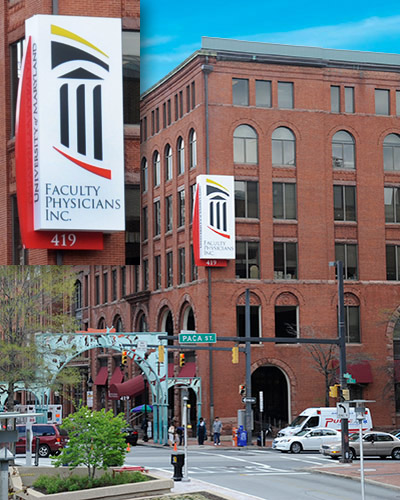
Wednesday, June 02, 2021
University of Maryland Faculty Physicians, Inc. (FPI) Positions for Significant Business Growth and Advancement, Promotes Three Top Executives to Senior Leadership Positions
William Tucker, MBA, CPA, Associate Dean for Practice Plan Affairs at the University of Maryland School of Medicine (UMSOM) and Chief Corporate Officer for University of Maryland Faculty Physicians, Inc. (FPI), along with UMSOM Dean E. Albert Reece, MD, PhD, MBA, have announced recent promotions in the FPI organization. These are expected to further enhance the financial growth and success of FPI, the UMSOM’s faculty practice organization.

